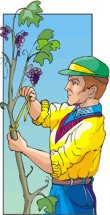
Worksheets and No Prep Teaching Resources
Careers in Science
Labor Day
 Worksheets and No Prep Teaching Resources Careers in Science Labor Day |
¿Qué hace un botánico? |
| Print ¿Qué hace un botánico? |
| Quickly Print: PDF (2 columns per page) |
|
| Quickly Print: PDF (full page) |
| Quickly Print: HTML |
|
¿Qué hace un botánico?
By Cindy Grigg Translation by Traductor TT |

|

 |
Create Weekly Reading Books
Prepare for an entire week at once! |
 |
Labor Day
|
 |
Careers in Science
|
 |
Science
|
|
Back to School Graphic Organizers Alphabet Worksheets Sight Words Math Worksheets Mazes 50 States Monthly Themes January February March April May June July August September October November December |
Fractions Place Value Time and Calendar Money Earth Day Solar System Analogies Nouns Following Directions Listening Capitalization Cursive Writing Patterns and Sequencing Dinosaurs All About Me Kindergarten First Grade Second Grade Third Grade Fourth Grade Fifth Grade Sixth Grade |
Multiplication Division Main Idea Cause and Effect Measurement Decimals Rounding Order of Operations Verbs Community Helpers Adjectives Plants Grammar Addition and Subtraction Contractions Bulletin Board Ideas Word Searches Crossword Puzzles Printable Puzzles Reading Comprehension Reading Skills English Language Arts |